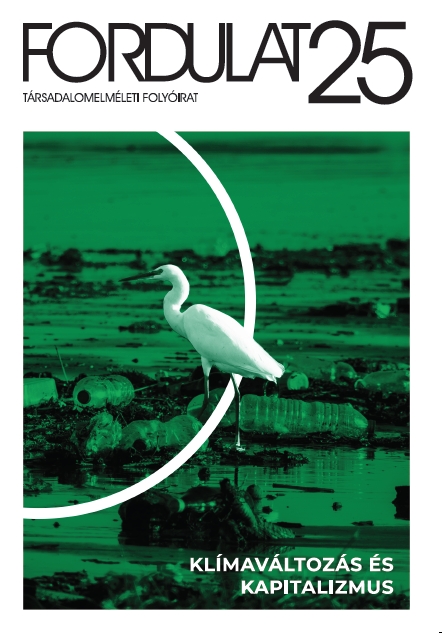Gombafonallal szőtt esszék az értékmentő felhalmozásról (Anna Tsing: The Mushroom at the End of the World)
Essays on Salvage Accumulation Woven with Hypha (review of Anna Tsing: The Mushroom at the End of the World)
Author(s): Alexandra CzeglédiSubject(s): Politics / Political Sciences, Anthropology, Social Sciences, Economy, Geography, Regional studies, Marxist economics, Environmental Geography, Political Theory, Sociology, Political economy, Cultural Anthropology / Ethnology, Culture and social structure , Environmental interactions
Published by: Fordulat
Keywords: accumulation by dispossession;nature;exploitation of nature;Anna Tsing;salvage accumulation;mushroom;capitalocene;
Summary/Abstract: Anna Lowenhaupt Tsing's book entitled "The Mushroom at the End of the World" could be read from the semi-periphery of the global capital. The supply chains of an Eastern Hungarian mushroom-business leads us to Tsing's book, to the author’s concept of salvage accumulation. By introducing salvage accumulation, Tsing means the process of value creation when it occurs without established control system of capitalism, like as it is managed in factories. Raw materials (coal and oil) are annexed by capital, within the outside sphere of capitalism, which independently occur in nature. This value-saving process, in this way, refers to the capital accumulation which does not depend on controlled conditions of capitalism. Commodification, thus, does not take place on factories’ conveyor belt, rather outside of the social structure, deep in the middle of forests (2015: 62-63). Natural resources were already present before human existence, and reproduce even after the extinction of human species. Although Tsing's book might be a valid critique of David Harvey's accumulation by dispossession, the concept of the reverse primitive accumulation coined by Kalyan Sanyal seems essential for mapping the complexity of capitalism. The reversal of capital accumulation is a political tool which legitimises exploitative processes of capitalism.
Journal: Fordulat (2008-tól Új Folyam)
- Issue Year: 2019
- Issue No: 25
- Page Range: 254-263
- Page Count: 10
- Language: Hungarian

